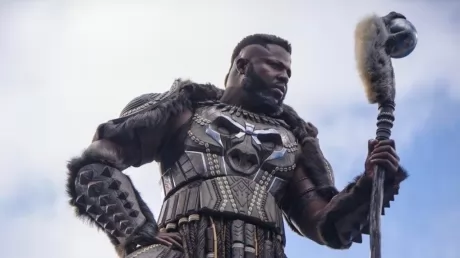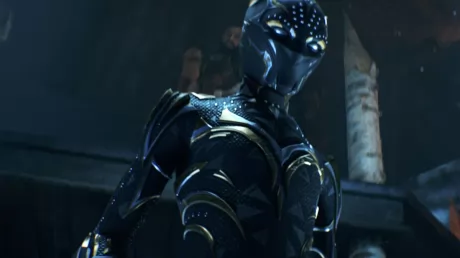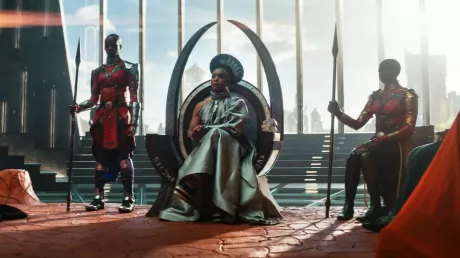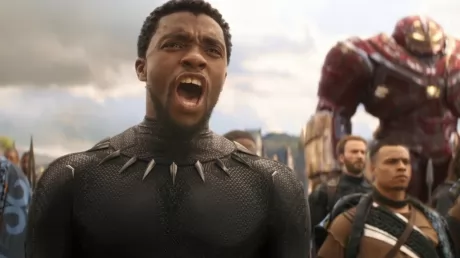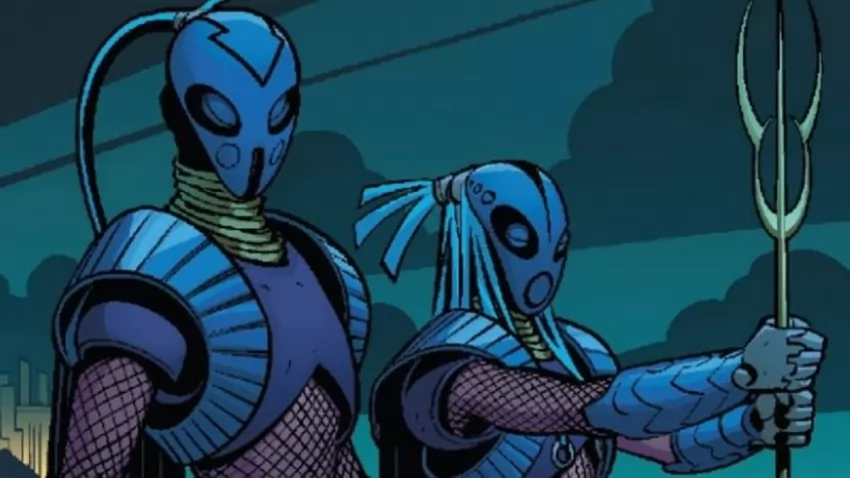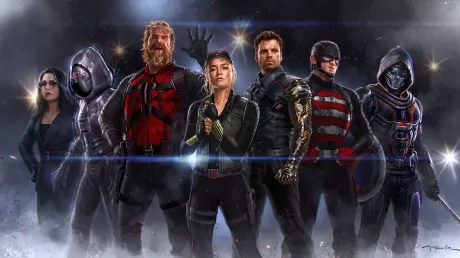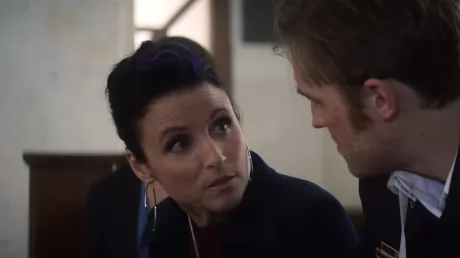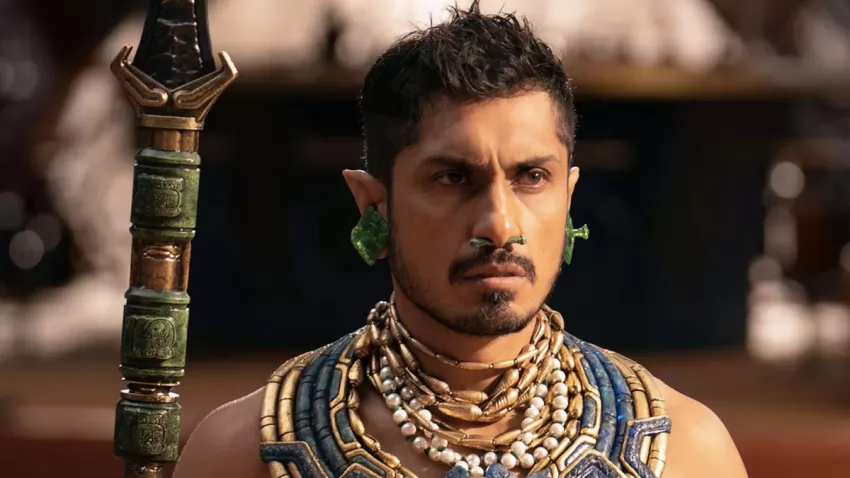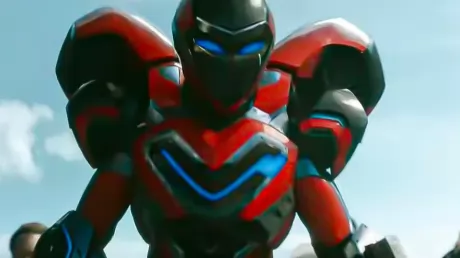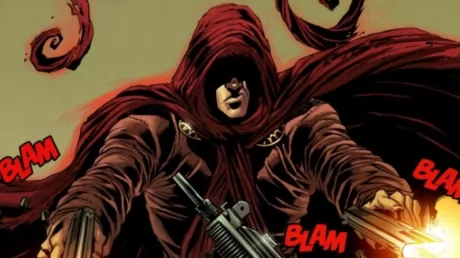Black Panther Wakanda Forever stands at the international box office for the second week in a row. A resounding success, although certainly not unexpected, for what is perhaps the most awaited Marvel film of 2022 by fans and critics. Alongside the success with the public, however, the second film dedicated to the Kingdom of Wakanda and its protector is also a central node for the development of the maxi-plot of the MCU. Although there aren’t post-credit scenes hinting at future Marvel projectsthe film signed by Ryan Coogler lays the foundations for many other productions both on the big and on the small screen, with direct repercussions on the Disney+ series dedicated to Ironheart, but also on titles like Thunderbolts, Captain America: New World Order and even on the upcoming films dedicated to the Avengers, namely The Kang Dynasty and Secret Wars. So let’s see what are the main questions left open by Black Panther: Wakanda Forever.
An increasingly less powerful Wakanda
Let’s start immediately by making a distinction: the events of Black Panther 2 they will have huge repercussions both inside and outside Wakanda, upsetting the internal politics of the tiny (but very rich) African Kingdom and the geopolitics of the Marvel world. Let’s try to analyze these two strands separately, bearing in mind however that the consequences of Wakanda Forever will probably only impact the “terrestrial” level of the MCU, and much less (or not at all) on the space or Multiverse level.
Within Wakanda, it remains at least partially open question of the succession to T’Challa, both as Black Panther and ruler. Wakanda Forever seems to have solved both problems, placing M’Baku on the throne that once belonged to T’Chaka and T’Challa and leaving Shuri in the Black Panther costume. However, it is not certain that this situation will be accepted by all Wakandians and foreign powers: M’Baku is not part of the ruling dynasty of Wakanda, but he is the leader of the Jabari, a tribe also in conflict with the route taken by the country under the government of T’Challa. At the same time, according to what we know from the post-credit scene of the film, Shuri is no longer in Wakanda, but in Haiti: not only do the figures of the King of Wakanda and Black Panther no longer match, but the latter does not it is no longer even found in the country of origin, which it should in theory protect. That someone decides to take advantage of Wakandian weakness for a surprise attack or, even, for a civil war?
With a series on Wakanda in developmentit is not so unlikely that Disney will decide to focus more on the domestic front of the country, where it is the role of Shuri and M’Baku could be disputed by opposing forces, or where the new Black Panther could come into conflict with the traditionalist ideas of the sovereign.
Plus, the post-credits scene from Black Panther: Wakanda Forever also explains that T’Challa has a son, who even received the same name as his father: it remains to be seen if what we saw in the final stages of Wakanda Forever is just a touching tribute to the late Chadwick Boseman or if it is a move that, while honoring the late actor , lay the foundations for future projects dedicated to Wakanda and its ruling dynasty. For now, we cannot fail to notice that, within a few titles, children have been introduced real or “spiritual” of many Marvel heroes, going from Hulk to Thor, and now Black Panther as well. On these same bases, then, the possibilities of one spin-off series about M’Baku and on the politics of his Kingdom are becoming more and more concrete, especially by virtue of the enormous public success of Wakanda Forever. The series, then, could also solve the problem once and for all conflict between tradition and progress in Wakandafurther delving into Shuri’s Black Panther, especially in view of the final climax of the Multiverse Saga with Avengers: The Kang Dynasty and Secret Wars.
Finally, always remaining within Wakanda, the film released two weeks ago marked an interesting one evolution of the Dora Milaje group from at least two points of view. On the one hand, Wakanda Forever delved into internal relationships to the group, touching on the theme of homosexuality and love between two of the Crown’s chosen guards. On the other hand, however, the film has opened the door to the Midnight Angelsor a group of ex-Dora Milaje who use very advanced weapons and armor, exactly like the ones Shuri provided to Okoye and her companions before the last battle against the talokans.
There Disney+ series about Wakandaaccording to some rumors from last year, it should focus precisely on the character of Okoyewho in Wakanda Forever was the most reluctant to adopt Shuri’s futuristic equipment and who was even deprived of her role as head of the Dora Milaje by decision of Queen Ramonda.
Not only that: among the founders of the Midnight Angels comics are Aneka and Ayo, the two warriors at the center of the film’s “LGBTQ+ scene”. We don’t know how much Disney wants to go deep into sensitive issues such as the acceptance of homosexuality and the relationship between tradition and progress, but the idea that the series dedicated to Wakanda focuses on founding of the Midnight Angels by some “outsiders” Dora Milaje from the group, perhaps precisely because of their homosexuality, could mark a big step forward, in terms of maturity of the topics covered, for the Marvel Cinematic Universe.
The Vibranium Wars
The foreign policy of Wakanda, after the events of Black Panther 2, however, could be even more complex than the internal one. The possibility that one will unleash real war for vibranium in the MCU has never been more concrete: we already know that metal is of interest to various figures (and various states, America in primis) throughout the Marvel world, while it was precisely the searches for non-Wakandian deposits of metal that gave rise to the events of the film .
Among the new characters of Black Panther Wakanda Forever we find in particular a rather enigmatic one: we are talking about the Dr. Graham of Lake Bell, who appears in the early sequences of the film alongside Robert John Burke’s Agent Smitty. The two characters may have gone unnoticed by most, but they seem to have a backstory rather interesting: both are in fact connected to the CIA and, above all, they know Agent Everett Ross from before of Wakanda Forever events. For comic fans, the character of Lake Bell would be none other than Lucia von Bardas, supervillain originally from Latveria. And, for those who don’t know, Latveria is the country ruled by Doctor Doom: in fact, the rumors about the possible inclusion of Destiny in Black Panther Wakanda Forever have all turned out to be false, but it is possible that the character of Graham / Von Bardas prepares the ground for the arrival of the villain, whose first purpose could be precisely to get his hands on the vibranium of Talokan and Wakanda, and which this point could debut in any Phase 5 film.
The other possibility, however, is that a cause a war with Wakanda and Talokan are the United States itself: in fact, an important role of the American leadership in the next Marvel films seems to have been confirmed by the casting of Harrison Ford for Thunderbolts and Captain America: New World Order, replacing the late William Hurt as General Thaddeus E. “Thunderbolt” Ross.
According to some rumors, Ross would be the President of the United States of America in the post-blip world, or it might just become so following the events of some future production (such as Secret Invasion, coming to Disney+ in 2023). Ross and the new director of the CIA, the Countess Valentina Allegra De Fontaine (who by the way we discover is the ex-wife of Everett Ross right during the events of Wakanda Forever), they could decide to send the Thunderbolts to Wakanda or Talokan, in a sort of “suicide mission” for the recovery of the much desired vibranium. According to another even more interesting rumor, however, Thunderbolts could start from an almost opposite premise: having ascertained the impossibility of getting hold of the Wakandian and Talokan vibranium, the world would focus on adamantium mining, discovered in a deposit at the South Pole below which lies the Wild Land, a sort of prehistoric world submerged by the ice of Antarctica. In both cases, however, the conditions for real “vibranium wars” seem to be there.
Not just Wakanda: Namor and Ironheart
Of course, it is impossible to talk about “Vibranium Wars” without at least mentioning Namor, the King of Talokan that Wakanda Forever has clearly introduced as an anti-hero with shareable motives. In this sense, the final scenes of Black Panther 2 show the Sub-Mariner intent on plotting to trigger a war against the superficial world, in alliance with Wakanda: it is possible that it will be the Talokan ruler himself who will start a conflict that could oppose the powers endowed with vibranium to those which instead are prime?
On the other hand, even the Talokan’s domestic and foreign policy will change long after the events of Wakanda Forever: the submerged city is in fact now known to the outside world, therefore its ruler will have to decide whether to continue a policy of total isolation (assuming that the international community and, above all, the United States decide to grant it) or if instead wage war on the whole world, as he already wanted to do during the events of Black Panther 2. Wakanda, in this case, could remain at the mercy of events, finding itself having to laboriously mediate between the two parties in conflict, or, even worse, having to defend one of two, using vibranium as an offensive weapon. A truly interesting narrative arc, which seems to fit the “thriller” drift that the terrestrial component of the MCU could take from Secret Invasion and Captain America: New World Order onwards.
Finally, there is also the character of Ironheart, played by Dominique Thorne and also introduced with the events of Wakanda Forever. Ironheart will receive a series for Disney +, so we can expect that the figure of Riri Williams, objectively overshadowed in Black Panther 2, will be explored much better in the show for the small screen.
Of course, the Ryan Coogler-directed film provided the first information about Riri Williams and her “powers”, explaining both that she is a prodigy girl who somehow managed to get hold of Stark technologies, from which she then made the pieces for her suit. In short, Ironheart will be directly linked to Iron Manas well as Wakanda, but could be halfway between two Marvel strands, namely that of supernatural component of the MCU and that of the legacy of the late Tony Stark. As for this second narrative strand, we already know that Ironheart will lay the groundwork for Armor Wars: The introduction of Iron Man’s armor pieces in Wakanda Forever only confirms this hypothesis. With regard to the “magic” part of the Marvel Cinematic Universe, however, the link could fit in The Hoodthe main villain of the show, who in the comics has close ties to the world of demons: it is therefore no coincidence that, according to many scooper of Hollywood, Ironheart could introduce Mephistoplayed by Sacha Baron Coen.
Black Panther: Wakanda Forever, how the MCU changes after the Marvel sequel

